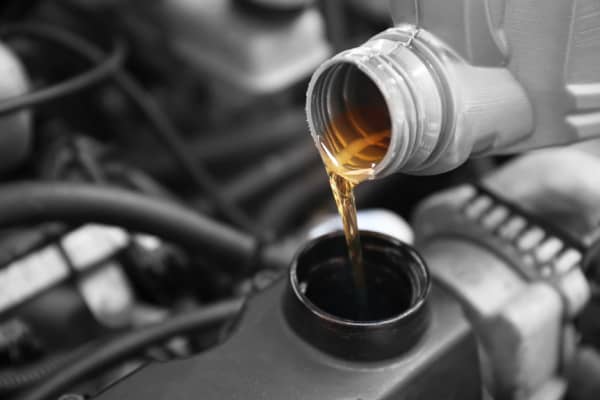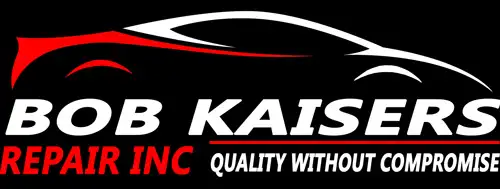The cost of an oil change can vary depending on the type of vehicle, the quality of the oil used, and other conditions. On average, conventional oil changes tend to be the most affordable type of oil change. For more precise estimates or figures, we recommend giving us a call at 585-392-4880 or scheduling an appointment online.

Motor oil is often likened to the lifeblood of your car engine, and as such, its maintenance remains a critical aspect of automotive care. The evolution of car, truck, and SUV engines means that while oil change criteria may have changed, it is more critical than ever.
Oftentimes, modern cars are equipped with a service indicator or dashboard light that conveniently signals when an oil change is due. Some even go a step further by issuing a warning when your oil level is low, or dirty. If you have a vehicle without the advanced oil change alert system you may rely on a window sticker that tells you when you need your next oil change. Routine oil change services not only help maintain the health of your engine but also provide professional technicians with an opportunity to inspect various components under the hood, monitor fluid levels, and identify other potential issues before they have a chance to escalate.
Signs Your Vehicle May Need Services in Addition to an Oil Change
- Excessive exhaust emissions
- A decrease in fuel efficiency, resulting in fewer miles per gallon
- Ticking sounds when starting your car
- Unusual smells, especially a burning odor
Is an Oil Change the Same as an Oil Change Service?
The terms are often used interchangeably. If you have questions about what our oil change service includes, please call our awesome team at Bob Kaiser's Repair Inc at 585-392-4880 with questions.
Types of Oil Changes
There are several types of motor oils (also referred to as engine oils), including conventional, synthetic, and more. The oil's weight signifies its viscosity, a crucial factor in maintaining optimal engine oil flow, and the frequency of your oil change depends on the type of oil your vehicle uses. At Bob Kaiser's Repair Inc, our experts are here to assist you in determining the ideal routine schedule and specific oil requirements for your vehicle:
Conventional Oil
- Standard motor oil
- Known for its affordability, especially when compared to synthetic oils but requires more frequent changes
- Derived from crude oil with additives to improve its lubrication properties
- Suitable for most light-duty vehicles and newer cars with low mileage or simple engines
Full Synthetic Oil
- Engineered from chemical compounds to have specific properties
- Offers better viscosity at low temperatures and maintains lubricity at high temperatures
- Has enhanced protection against engine sludge and harmful deposits
- Longer service intervals compared to conventional oils
- More expensive than conventional oils but can improve engine life and performance
Synthetic Blend Oil
- A mix of conventional and synthetic oils
- Offers better protection and performance than conventional oil but not as much as full synthetics
- Generally more affordable than full synthetic oils
- Suitable for vehicles that carry moderate loads or operate in moderately high temperatures
When choosing an oil for your vehicle, always consult the owner's manual or a trusted mechanic to ensure you're using the most appropriate type for your car's specific requirements.
Oil Filter Change
The initial step involves locating and removing the old oil filter, which could be located on the side, top, or bottom of the engine. A professional mechanic will unscrew the filter, typically with a catch basin in place to manage any oil spillage.
Then, the technician prepares the new oil filter to ensure an effective seal and make removal during your next visit smoother. Then, your mechanic will carefully screw the new filter into place.
L.O.F.—Lube, Oil, Filter
L.O.F. is a common term in the automotive industry, often used to describe a basic service package that includes lube, oil, and filters. Though general maintenance is sometimes overlooked, these services are crucial to maintaining the health and performance of your vehicle’s engine.
- Lube:Adding new clean oil to serve as the lubrication in the engine preventing unwanted friction.
- Oil: Draining the old engine oil and replacing it with new oil to ensure proper lubrication and cooling of the engine components.
- Filter: Replacing the old oil filter with a new one ensures that the new oil remains clean and free of contaminants, which can help prolong the life of your engine.
European and Domestic Car Oil Changes We Specialize In
- Chevrolet Oil Changes
- GMC Oil Changes
- Buick Oil Change
- Chrysler Oil Change
- Dodge Oil Change
Frequently Asked Questions
An oil service is a complete maintenance check for your car. It typically includes an oil change and other inspections, such as checking your fluid levels, tire pressure, and the engine's overall condition. On the other hand, an oil change only involves replacing the old engine oil with new oil and usually changing the oil filter. While an oil change is a part of an oil service, the latter provides a more thorough assessment of your vehicle's overall health, ensuring optimal performance and longevity.
Synthetic blends and full synthetic oil typically offer greater longevity compared to their conventional counterparts. Actual lifespan may vary depending on manufacturers' recommendations, driving conditions, and oil type. However, for precise guidance specific to your vehicle, it is advisable to consult the owner's manual or give us a call at 585-392-4880 for more information.
